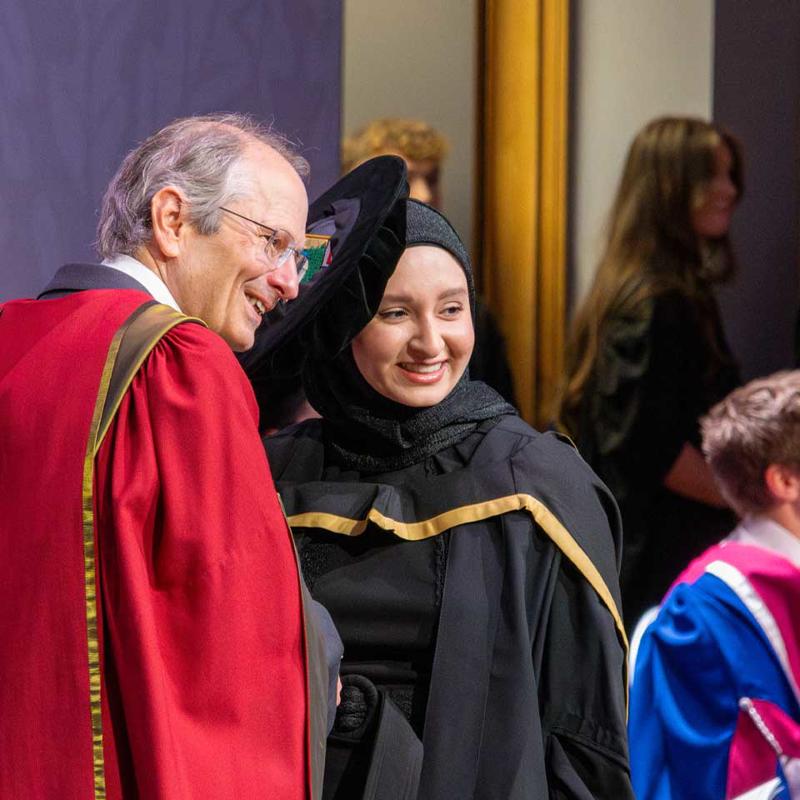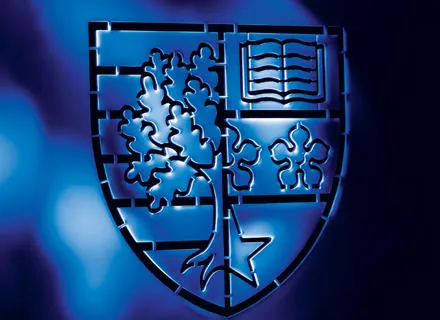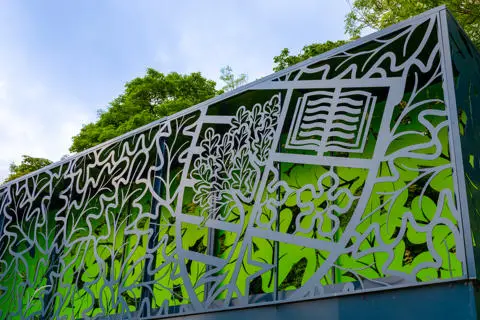Key information
Advance your career in brewing and distilling with the flexibility to study online, at your own pace. Gain the scientific, technical, and management expertise to excel in a globally respected, innovation-driven industry.
- Level
- Postgraduate
- Delivery type
- Self-paced
- Degree qualification
- MSc
- Location
- Online
- Duration
- Flexible
- Start date
- January, September
Programme overview
With origins in brewing and distilling education dating back to 1903, Heriot-Watt University is recognised worldwide as a leader in the science, technology and business of alcoholic drinks production. This online MSc Brewing and Distilling prepares you for senior technical, operational, and management roles across the brewing, distilling and malting sectors.
110+ years
Brewing and distilling have been taught and researched at Heriot-Watt since 1903.
Global
Study with a global leader. Home to the International Centre for Brewing and Distilling, with worldwide industry recognition.
Flexible
Designed for working professionals, we offer flexible online study that fits around your shifts, family life and career.
Develop your expertise through a practice-led curriculum that blends brewing and distilling science with real-world production and business skills. From cereals and yeast to bottling, branding and beyond, you’ll gain the knowledge and confidence to lead across the full value chain.
Throughout the MSc Brewing and Distilling, you will:
- Gain specialist knowledge of malting, brewing, fermentation, distillation, maturation, packaging and distribution.
- Understand policy, legislation, ethics, and health and safety in the design, manufacture, marketing and sale of alcoholic drinks.
- Develop the research skills to diagnose issues, improve processes and innovate new products.
- Build insight into the business environment of brewing and distilling, including strategy, operations, HR, marketing and finance.
- Strengthen professional skills in communication, teamwork, project management and quality assurance.
Start with just one course
We’ve made it simpler than ever for you to start your MSc. With performance-based admission, you only need to pay for and then pass your first course in Stage One to join the programme. No barriers. Get started today.
Enrol nowStudent experience
Heriot-Watt University has been researching and teaching brewing and distilling since 1903. In 1990 we founded the International Centre for Brewing and Distilling to meet the needs of the global malting, brewing and distilling industries.
The MSc Brewing and Distilling is led by Dr Anne Elizabeth Hill, an expert in microbial spoilage and water management within brewing and distilling. Her research on spoilage organisms, sustainable distilling practices and industry collaborations - including projects with Edinburgh Gin - ensures the programme is grounded in current practice and innovation.
Course content
The MSc Brewing and Distilling comprises eight taught courses and a research project, combining scientific depth with practical industry application. The programme is designed to be studied online at your own pace, typically over three years, with three entry points – January and September. Each course requires around 150 hours of study.
Core courses
- Cereals, Malting and Mashing
- Wort Boiling and Fermentation
- Distilling and Whisky Maturation
- Filtration and Packaging
- Beverage Microbiology and Biochemistry
- Research and Professional Practice
- Management in the Food and Beverage Industries
- MSc Research Project
Optional courses
- Foundations of Energy
- Renewable Energy Technologies
- Environmental Impact Assessment
- Introduction to Process Technology

Graduate in Edinburgh, Dubai or Malaysia
All online degree graduates are also invited to attend their ceremony at one of our international campuses – in Edinburgh, Dubai or Malaysia – making your achievement a truly global celebration.
Learn moreOur teaching faculty

Fees and funding
The MSc Brewing and Distilling is offered on a pay-per-course basis, giving you flexibility to spread the cost of your studies.
| Course fee | Dissertation Fee | Total |
|---|---|---|
| £1,175 | £2,510 | £11,910 |
The tuition fees listed are applicable for 2026.
Funding opportunities
Pay Per Course
All our programmes offer the flexibility to pay course-by-course, allowing you to spread the cost of your tuition over the lifetime of your studies.
Employer Sponsorship
Securing funding from your employer can help with financing your studies. For more information contact b2b@hw.ac.uk
20% Alumni Discount
If you are a Heriot-Watt alumnus, you qualify for 20% off your programme fees. For more information on how to claim your alumni discount contact hwonlineapps@hw.ac.uk.
We're here to support you
If you have questions or need help with enrolment, complete our quick enquiry form and an Enrolment Advisor will be in touch.
Contact usEntry requirements
We have standard entry requirements for all of our courses that you will have to meet.
We welcome applications from both science graduates and experienced industry professionals who want to develop advanced brewing and distilling expertise.
Standard entry requirements
We normally require:
- A good honours degree (or equivalent) in a relevant science, engineering, or related discipline, or
- Significant relevant professional experience in brewing, distilling, malting, or related industries.
All online students must successfully sit and pass the Final Online Assessment in two MSc Brewing and Distilling courses to continue to the PG Diploma or MSc level.
Additional entry routes
Recognition of prior learning (RPL)
We are committed to providing study opportunities to applicants who have a wide range of prior experiences and recognise that some students entering our online programme will have completed prior academic study in subjects that align closely to this programme. Where this is the case, students may apply for Recognition of Prior Learning (RPL).
- Applying for RPL: We can only consider requests for RPL at the time of application to a course of study.
- Maximum credits: You may be eligible to be granted exemption for a maximum of 20 credits.
- Eligibility: The qualification may be valid for RPL only if gained with the last 5 years. Evidence will need to be provided.
- Cost breakdown: The overall cost of your programme will be determined by whether you are awarded RPL for a 20-credit course, in which case you will not be required to register for that course. Programme fees can be found under the fees and funding section.
For more information contact hwonlineapps@hw.ac.uk.
English language requirements
If your first language is not English, or your first degree was not taught in English, we'll need to see evidence of your English language ability.
The minimum English language requirement for entry to this programme is IELTS 6.0 (or equivalent) with no score lower than 5.5.
If you do not have IELTS 6.0, we offer a range of English language courses to help you meet the English language requirement for this programme prior to commencing your studies.
Why Heriot-Watt
We're the top university in Scotland for graduate outcomes and 5th in the UK, which means that more of our graduates are employed or in postgraduate education than any other institution in the country. We're also ranked 1st in Scotland for producing CEO and MDs (Novuna Business Cash Flow 2023).
We're Scotland's most international University, with five global campuses and a global community of 60,000 online students and alumni from over 158 countries. Our online programmes are designed and developed by the same faculty who teach on our global campuses - expert academics and leaders in research and innovation who work alongside industry to find solutions to some of the world's most pressing challenges.
Together, we shape your future.
110+ years
Brewing and distilling have been taught and researched at Heriot-Watt since 1903.
Industry
Strong connections with industry - breweries, distilleries and professional bodies worldwide.
Flexible
Learn on demand and online without pausing your career in the drinks industry
Employability
With our flexible model you can earn while you learn, build your CV, and apply new skills right away. Get free access to 500+ industry credentials and dedicated Careers Service support.
Your Online experience
Explore Heriot-Watt Online as a student
Speak to an Advisor
Our Enrolment Advisors are here to help you explore your options, entry routes, and how online study can fit around your life.
Book a call









